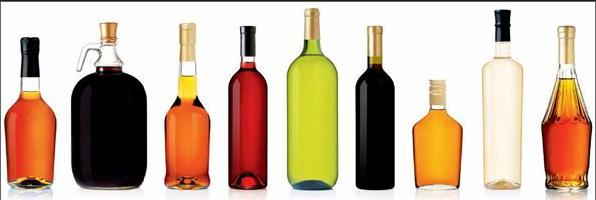当心食物里的智力“杀手”
From+fitnea.com



When it comes to nutrition, it must be mentioned that there are all sorts of foods: some superfoods1) are your greatest allies against extra pounds, while others stimulate your cognitive function2) and improve your memory. On the other hand, some foods are known to have a devastating effect on your brain functioning, and nutritionists advise us to consume them moderately in order to limit their negative impact. Having said that, here are the top 7 foods that kill your intelligence, slowly but surely3).
一说到营养,必须要提到各种各样的食物:一些超级食物是帮你应对体重超标的最佳同盟军,而另一些食物可以激发你的认知功能,提高你的记忆力。另一方面,我们都知道有一些食物会对大脑功能产生破坏性的影响,为了限制其负面影响,营养学家建议我们要适量地摄入这些食物。说到这个话题,下面就是七种最具杀伤力的食物,它们虽然影响缓慢,但一定会损伤你的智力。
1. Sugary Products
Sugar and sugary products are bad not only for your waistline4), but for your brain function as well. Long-term consumption of sugar can create a lot of neurological problems, and it can also interfere with5) your memory. On the other hand, sugar can also interfere with your ability to learn; this is why it is recommended to avoid pre-baked goods, sugar, corn syrup6) and products that are high in fructose7).
2. Alcohol
Alcohol is known to harm your liver in the long run, and it also causes what is known as "brain fog". Like the name suggests, the term of brain fog refers to a feeling of mental confusion. It acts like a cloud that impacts your ability to think clearly, as well as your memory. Have you ever noticed that you cannot remember common item names, or you cannot recall certain events or you are not sure whether they were dreams or actually happened? This might be influenced by high alcohol intake, which impacts the balance of the brain. Fortunately, these symptoms are reversible8) provided that you stop consuming alcohol, or you limit your intake to one or two drinks per week.
3. Junk Food
A recent study performed at the University of Montreal has revealed that junk food can change the chemicals in the brain, thus leading to symptoms associated with depression and anxiety. Besides, foods that are high in fat can also trigger9) some symptoms that are similar to the signs of withdrawal10) when you stop consuming them. These foods affect the production of dopamine11), an important chemical that promotes happiness and an overall feeling of well-being. Moreover, dopamine also supports the cognitive function, the learning capacity, alertness, motivation, and memory. This is why it is important to avoid all foods that contain excessive fat.endprint
4. Fried Foods
Almost all processed foods contain chemicals, dyes12), additives, artificial flavors, preservatives13) and such—these can affect the behavior and the cognitive functioning due to the chemical that causes hyperactivity14), both in children and in adults. Fried or processed foods slowly destroy the nerve cells located in the brain. However, some oils are more dangerous than others—sunflower oil is considered to be among the most toxic ones.
5. Very Salty Foods
Everybody knows that salty foods affect your blood pressure and they are very hard on your heart. However, as research suggests, foods that contain high amounts of salt (sodium15)) can affect your cognitive function and impair16) your ability to think. Otherwise stated17), salty foods affect your intelligence! As a matter of fact, the consumption of salty foods has been shown to have the same effect as drugs, as they cause harsh withdrawal symptoms18) and cravings for salty foods.
6. Grain Foods
All sorts of grains have an impact on your brain functioning and your overall health, except for 100% whole grain which is very rich in fiber and it is known to prevent arterial aging19). If you consume regular grains, your body ages more quickly than it is supposed to, and you can also experience memory loss and brain fog. Having said that, try swapping20) the regular carbohydrates21) for the complex carbohydrates—all you need to do is to opt for whole grain bread!
7. Foods with Processed Proteins
Proteins are the building blocks of muscles and they are very important for the proper functioning of your body. Meat is the richest source of high-quality protein, but avoid overly processed protein such as hot dogs, salami22), sausages and such. Unlike the natural proteins that help your body insulate the nervous system23), processed proteins do exactly the opposite. Opt for natural fish (especially tuna and salmon), dairy, walnuts and seeds as these are natural, high-quality protein sources.
1. 含糖食品
糖和含糖食品不但不利于你保持腰部曲线,而且还会损害你的大脑功能。长期摄入糖会产生许多神经方面的问题,还会影响你的记忆力。另一方面,糖还会影响你的学习能力,这就是为什么说最好要远离预烘焙食品、糖、玉米糖浆和果糖含量高的食品。
2. 酒精
众所周知,长期饮酒会损伤肝脏,并且还会导致被称为“脑雾”的症状出现。顾名思义,脑雾这个词是指一种大脑混乱的感觉。它就像是一团云雾,影响你清晰思考的能力和记忆力。你有没有注意到你想不起来一些常见物品的名称,抑或是记不起来某些事情,或不能确定这些事是梦境还是真实发生过?这可能是大量饮酒使大脑的平衡受到了影响而造成的。幸运的是,如果你停止饮酒,或是控制自己每周只喝一两杯的话,这些症状是可以逆转的。
3. 垃圾食品
最近(编注:本文写于2013年5月)在蒙特利尔大学进行的一项研究显示,垃圾食品会改变大脑中的化学物质,从而导致与抑郁和焦虑相关的症状出现。除此之外,高脂肪食物还会引发一些症状。当你停止食用这类高脂肪食物时,就会产生和戒毒相类似的症状。这些食物会影响多巴胺的产生,而多巴胺可是一种能够提升幸福感并使全身感觉愉悦的重要化学物质。此外,多巴胺还维持着认知功能、学习能力、灵敏度、积极性和记忆力。正因为如此,避免食用一切含有过多脂肪的食物才至关重要。endprint
4. 油炸食品
几乎所有的加工食品都含有化学物质、着色剂、添加剂、人工香料、防腐剂等——由于这些成分含有造成活动亢进的化学物质,因此会影响儿童和成人的行为和认知功能。油炸或者加工食品会缓慢破坏大脑的神经细胞。不过,一些油类要比其他油类更为危险——葵花油被认为是毒性最大的油类之一。
5. 过咸的食物
众所周知,咸的食物会影响血压,对心脏也非常不好。然而,正如研究表明的那样,含盐(钠)高的食物会影响你的认知功能,削弱你的思考能力。还有种说法:含盐食物会影响你的智力!事实上,吃咸的食物被证实会和吸毒一样产生同样的影响,因为过咸的食物会导致严重的脱瘾症状,会让人很馋咸的食物。
6. 谷类食品
所有谷类食品都会影响你的大脑功能和整体健康,百分之百的全谷物食品例外。它富含纤维素,而且众所周知可以防止动脉老化。如果你经常吃谷类食品,你的身体会比原本状态加快老化,还会有健忘和脑雾的症状出现。说到这儿,试着把普通的碳水化合物换成复杂的碳水化合物吧——你只需要选择全麦面包就可以!
7. 加工过的蛋白质食物
蛋白质是构建肌肉的“砖瓦”,而且它们对维持身体的正常功能非常重要。肉类是高质量蛋白质最为丰富的来源,但是应避免食用过度加工过的蛋白质,比如热狗、萨拉米香肠、腊肠等。天然蛋白质能帮助身体保护神经系统,加工过的蛋白质的作用与天然蛋白质完全相反。选择天然的鱼类(特别是金枪鱼和三文鱼)、奶制品、核桃以及植物种子类食物吧,因为这些是高质量天然蛋白的来源。
1. superfood [?su?p?fu?d] n. 具有较高营养价值的天然食物
2. cognitive function: 认知功能,是指人们运用智力认识、感知或理解思想、概念等的过程,涉及感知、思考、推断和记忆的各个方面。
3. slowly but surely: 慢而准地;最后一定成功地
4. waistline [?we?stla?n] n. 腰围
5. interfere with: 干预,阻挠,妨碍
6. syrup [?s?r?p] n. 糖汁,糖浆(如糖蜜、玉米糖浆、槭糖浆)
7. fructose [?fr?kt??s; ?fr?kt??z] n. 【化】果糖;左旋糖
8. reversible [r??v??s?bl] adj. 可反向的
9. trigger [?tr?ɡ?(r)] vt. 引起
10. withdrawal [w???dr???l; w?θ?dr???l] n. 戒毒(或脱瘾)过程
11. dopamine [?d??p?mi?n] n. 【生化】多巴胺
12. dye [da?] n. 染料
13. preservative
[pr??z??v?t?v] n. 防腐剂
14. hyperactivity
[?ha?p?r??kt?v?ti] n. 活动亢进
15. sodium [?s??di?m] n. 【化】钠
16. impair [?m?pe?(r)] vt. 损害,损伤
17. stated [?ste?t?d] adj. 陈述清楚的;阐明的
18. withdrawal symptoms: [复]戒毒(或脱瘾)过程中产生的症状(如盗汗、恶心、抑郁等)
19. arterial aging: 动脉老化,是一种老龄化的改变之一,表现为动脉血管床扩大、动脉壁张力和弹性降低、全身动脉压降低等。arterial [ɑ??t??ri?l] adj. 动脉的
20. swap [sw?p] vt. 交换
21. carbohydrate
[?kɑ?b???ha?dre?t] n. 【生化】碳水化合物,糖类
22. salami [s??lɑ?mi] n. 萨拉米香肠(意大利蒜味香肠)
23. 这里保护神经系统的是髓磷脂(myelin),它是包绕在神经元的轴突外部的物质,由15%~30%的蛋白质和70%~85%的各类脂质组成。髓磷脂会像护套一样把神经包围起来,使其与外界绝缘,从而保持神经电信号的完整性。髓磷脂一旦遭到破坏或毁坏时,电信号就会中断或者短路,神经就会停止正常工作。insulate [??nsjule?t] vt. 隔离;保护
译 / 袁瑞endprint

